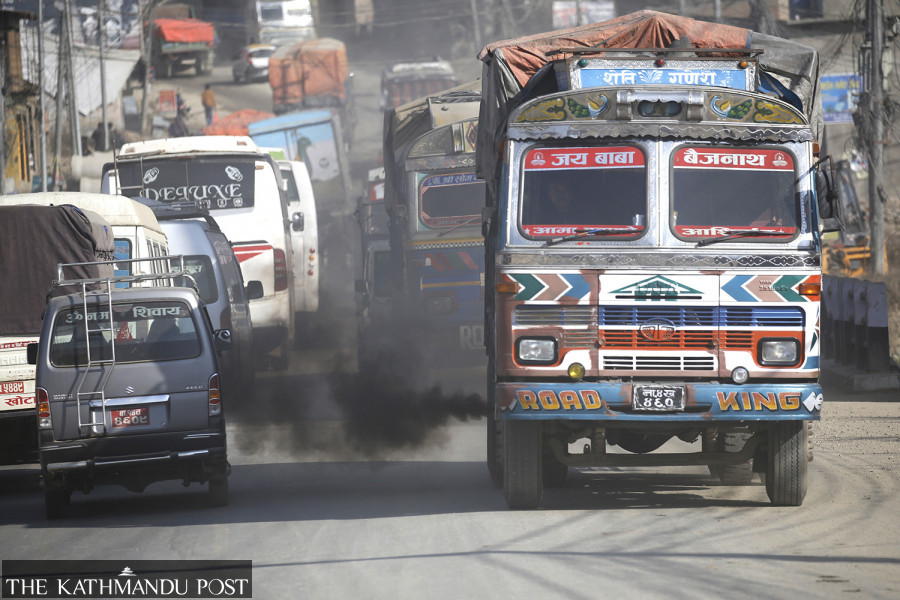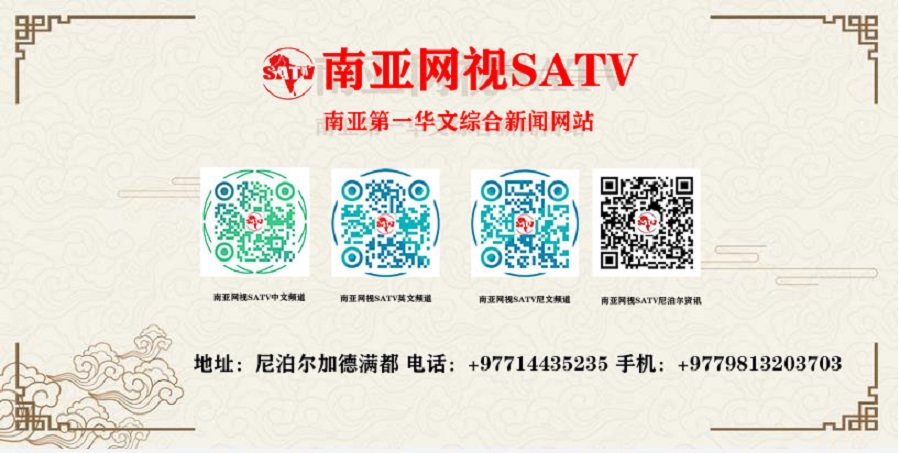
Nepal Oil Corporation says pollution will not be reduced by using Euro VI standard petrol and diesel in Euro III and IV vehicles. POST FILE PHOTO
In a fine example of putting the cart before the horse, Nepal switched to Euro VI standard gasoline two years ago; but Euro VI compliant automobiles, which use the new cleaner fuel, are yet to arrive in the country.
State-owned oil monopoly Nepal Oil Corporation has been importing Euro VI standard petrol and diesel since April 2020. The shift to new European standard fuels, which are cleaner and more eco-friendly, was intended to control rising pollution levels in the country.
But without Euro VI compliant vehicles that go with them, the move doesn't make much sense, environmentalists say.
Green activists say the full environmental impact of having cleaner fuels will only become apparent when Euro VI compliant vehicles are matched with Euro VI compliant fuels.
“Euro VI fuels have been powering technologically older engines, and there is no benefit to the environment,” said Sushil Bhattarai, deputy managing director of Nepal Oil Corporation.
The Environment Ministry says it has been considering having Euro VI standard vehicles for a long time, but automobile dealers have been unenthusiastic about the idea.
“The file is at the Environment Ministry. We are discussing the implementation of Euro IV or Euro VI vehicles,” Nabin Kumar Pokharel, senior divisional engineer at the ministry, told the Post.
The ministry has not discussed the matter with the concerned stakeholders.
A committee was formed some years ago and research has also been done. Since the oil monopoly started to import Euro VI standard fuel, the ministry had prepared to enforce new Euro VI vehicle rules. “But an official decision is yet to be made,” said Pokharel.
The Nepal Automobile Dealers’ Association (NADA) does not want to implement the new rule immediately.
“We are not importing Euro VI standard vehicles because we do not have skilled and trained people to repair them,” said Subash Acharya, vice-president of NADA. “The immediate implementation of Euro VI fuel will create problems for customers.”
While Euro IV fuels contain 50 parts per million (ppm) sulphur, the sulphur content in Euro VI grade fuel is only 10 ppm. Harmful nitrogen oxide emissions from diesel cars can be brought down by nearly 70 percent and from petrol cars by 25 percent with the use of Euro VI gasoline.
The new standard is also believed to reduce cancer-causing particulate matter in diesel emissions by up to 80 percent. The Euro standard of fuel is based on the European Union’s fuel and emission standards that were introduced in 1993. Since then, standards have consistently improved to make fuels cleaner and more environment-friendly.
“The government is not coordinating with auto importers. We are ready for Euro VI standard vehicles and we can start importing them within six months, but there should be a solid strategy from the government before the rule is implemented,” said Acharya.
According to automobile dealers, the cost difference between Euro VI standard vehicles and Euro III and IV vehicles ranges from Rs30,000 to Rs100,000 for motorcycles, Rs600,000 to Rs600,500 for four-wheelers, and Rs1 million to Rs2 million for commercial vehicles.
Kapil Shiwakoti, director of sales and operation at Laxmi Group, said many companies had been importing Euro VI standard two- and four-wheelers for the past two years.
“But implementing Euro VI standards in commercial vehicles can impact the market. We don’t have the necessary manpower. They need to be stationed in different parts of the country. It is difficult to do so at short notice,” said Shiwakoti, who is also chairperson of the environment department at NADA.
"The available mechanics do not have knowledge about Euro VI vehicles, and the automobile dealer network does not extend all across the country," Shiwakoti said.
“The government can implement Euro IV now and gradually shift to Euro VI in the next two years.”
Nepal Oil Corporation says pollution will not be reduced by using Euro VI standard petrol and diesel in Euro III and IV vehicles. “It can cause more pollution if the vehicle engine is not compatible with the fuel type,” said Bhattarai.
"The combination of Euro VI vehicles and fuel minimises pollution, drastically making the environment cleaner," he said.
“We have been saying that the vehicles being imported should be of Euro VI standard, then the fuel that is being imported by paying so much will be rightly used.”
Most motor vehicles in Nepal only comply with Euro II or Euro III norms.
Nepal imported petroleum products worth Rs182 billion in the first seven months of the fiscal year ended mid-February. Officials said the import bill swelled as a result of higher prices, and it did not reflect a rise in quantity.
According to the Department of Customs, the country imported vehicles and parts and accessories valued at Rs69.15 billion in the first seven months of the current fiscal year.
A study conducted by the International Centre for Integrated Mountain Development in 2017 found that about 35 percent of the diesel-powered vehicles in Kathmandu Valley emit a visible plume of black smoke, contributing substantially to the ambient pollution.













